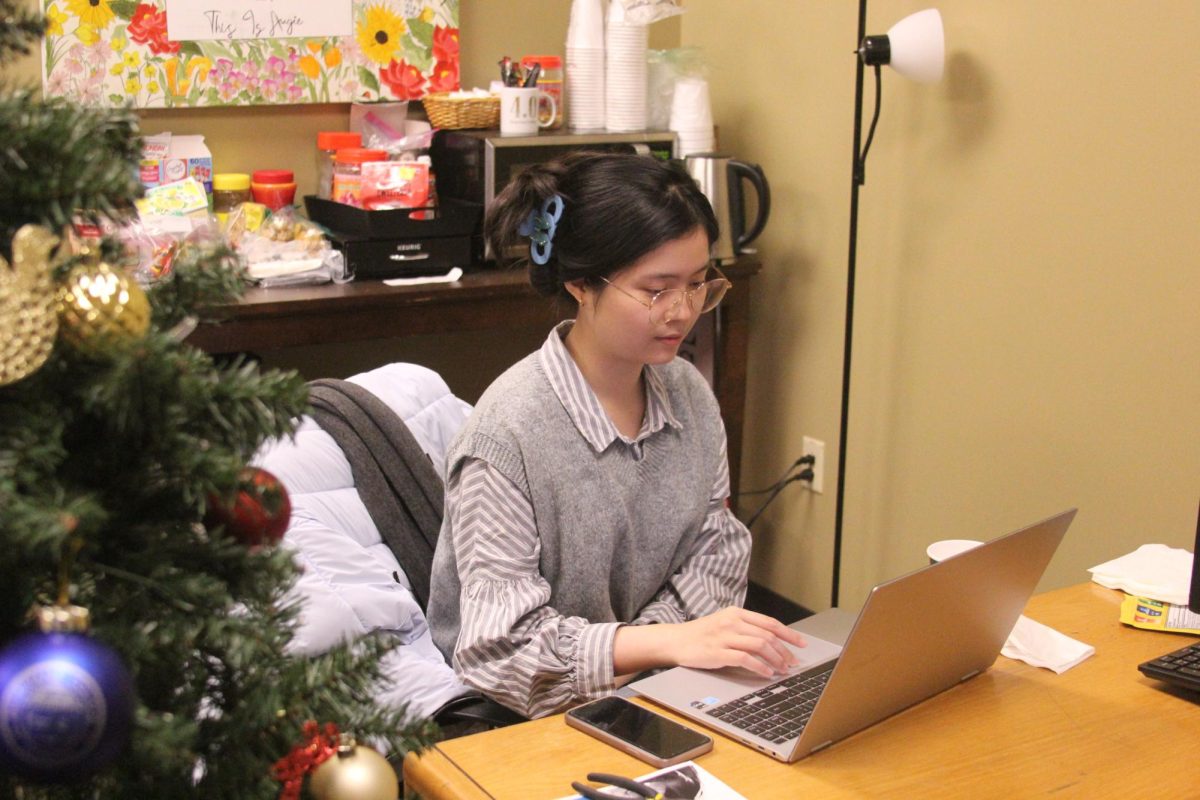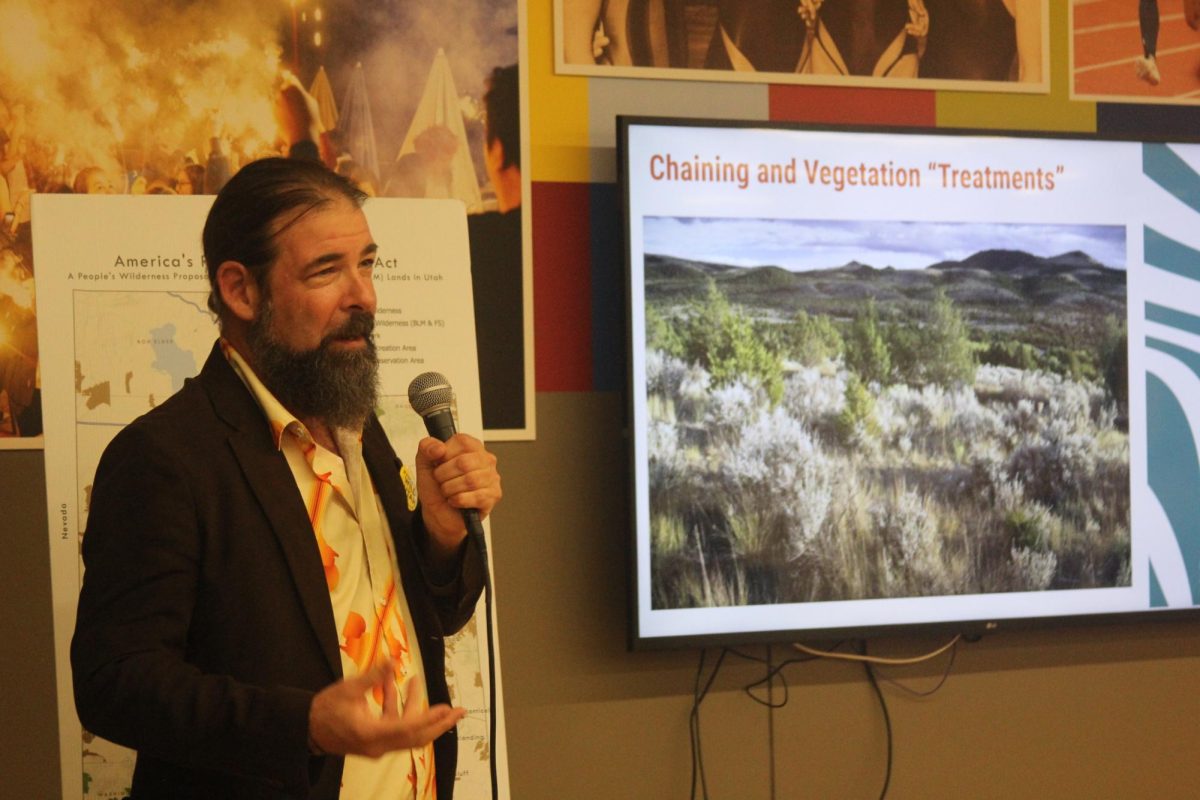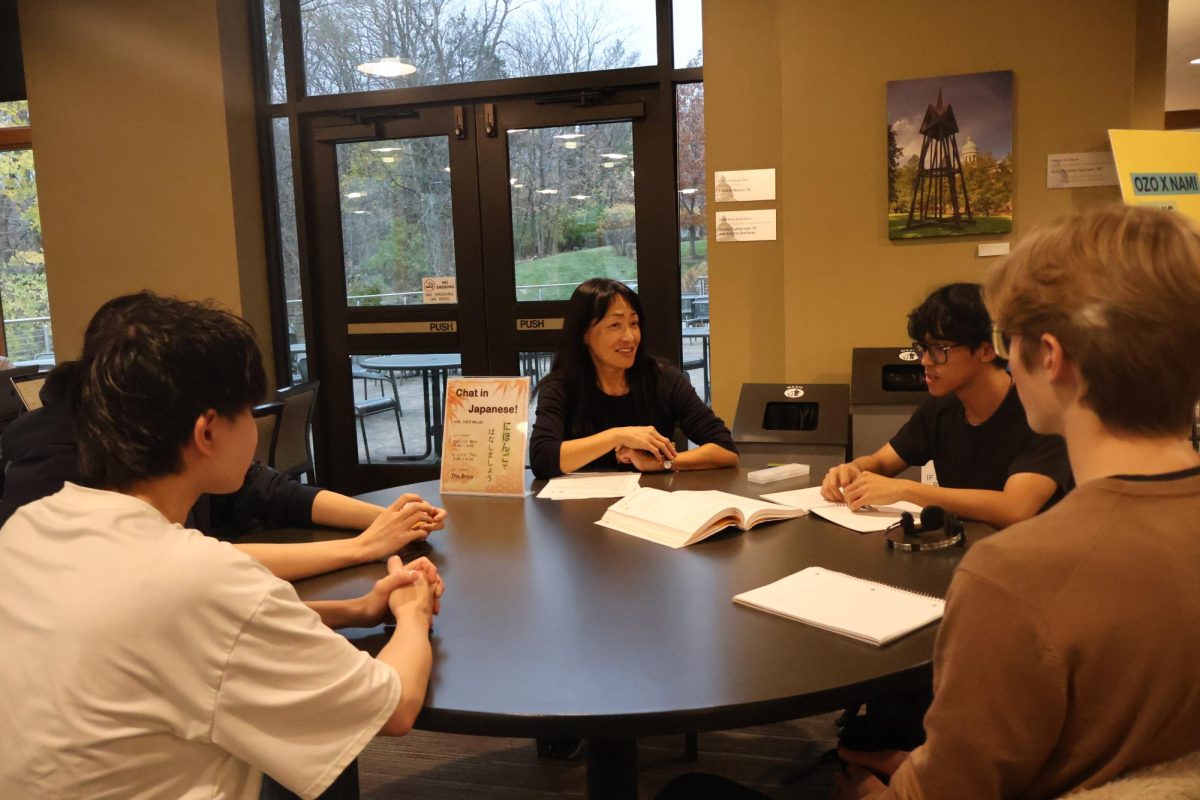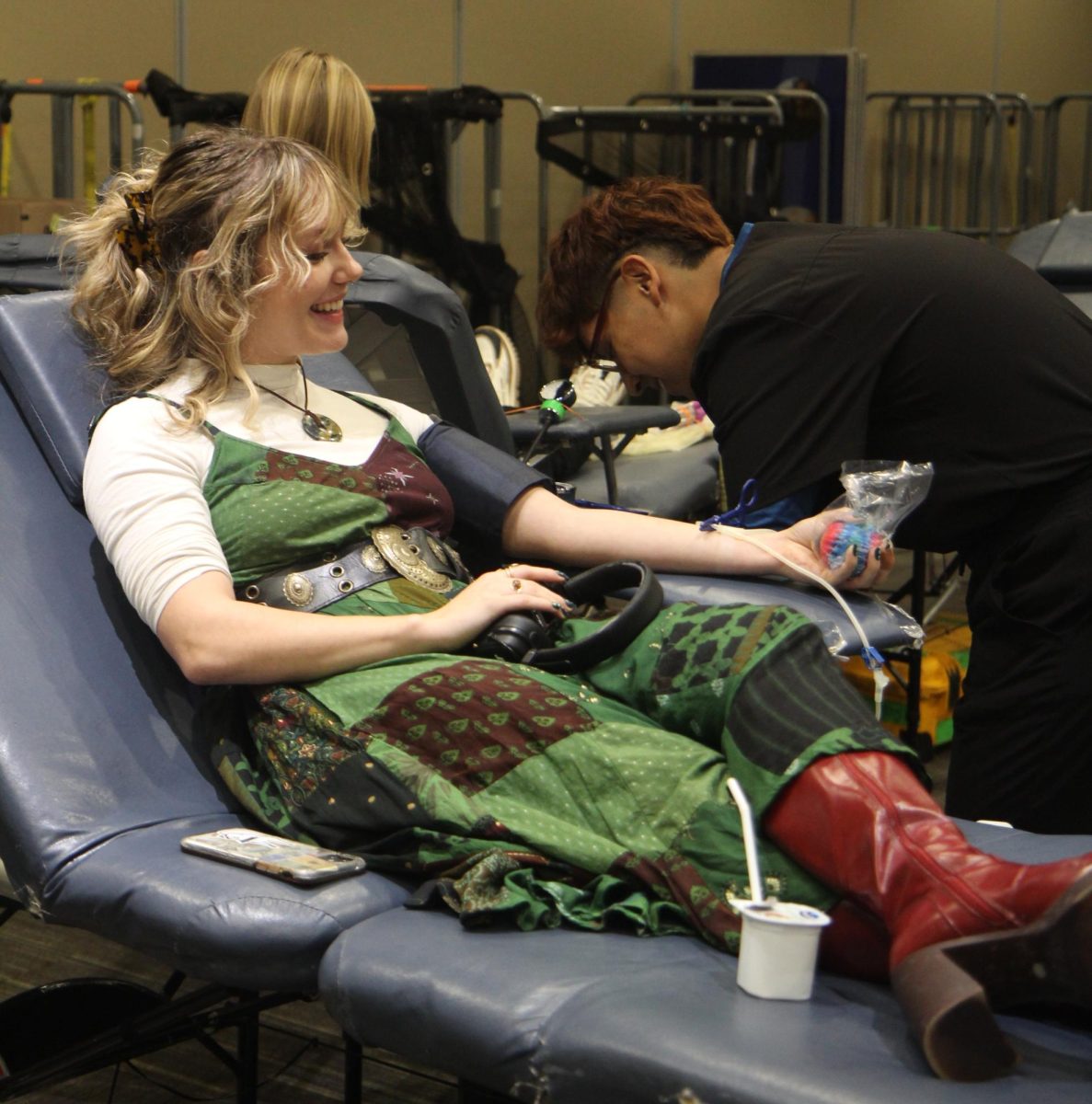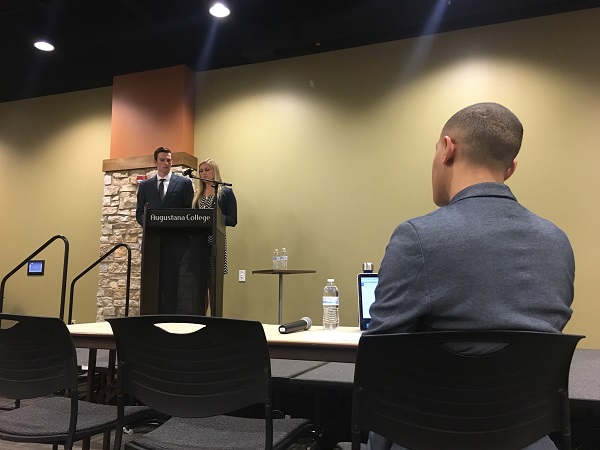
Photo by Luanna Gerdemann.
SAGA, Augustana’s literary art magazine, may not be able to award $2,000 in prize money this year due to the Student Government Association not giving the publication any funds.
“It says (on our website) we have up to $2,000 in prizes, but that’s not true now,” said Elena Leith, SAGA co-editor. “It’s going to be a lot of begging and pleading. It’s a lot of ‘can you donate your time?’”
However, she said the English department is providing enough money to allow SAGA to print the annual magazine.
“SAGA never really had an issue with money before,” said Leith.
SGA President David Sommers said while SGA fully supports the publication, in the past, SAGA has been “receiving a blank check.” Sommers said the reasons SAGA received no funds was because the group did not fundraise, network and advertise as well as the other groups on campus.
SAGA co-editor Alyssa Froehling said the reason SAGA was given was the publication did not have enough of a presence on campus.
“It’s not like we have a ton (of magazines) left over,” said Froehling. “For the most part they’re taken and read, and I think that’s important.”
Leith said SAGA receives approximately 100 submissions in poetry and about 30 in art. English secretary MaryJane Letendre said that on average, SAGA prints 500 magazines.
“For a lot of students, this is the only way for them to express themselves,” said Leith.
Sommers said SAGA needs to improve upon its current strategy of placing the magazines on the tables in Old Main and the library.
“My hope and dream is so that all students and all clubs will be able to read student publications and be able to see (that) this is a phenomenal book; this is a great thing that the college does,” Sommers said.
Sommers said the senate should be the ones to decide how large of a budget SAGA receives.
Out of the 93 organizations SGA funds, 46 did not receive a budget this year, according to a document released by the organization on Sept. 2. Evelyn Campbell, dean of students, said this number is about average compared to years past.
She said the lump sum set aside by the college for SGA to award to student groups is $122,612, and the total amount of funds requested for this year was $191,000.
According to Melissa Lambrecht, the staff accountant handling SGA’s funds, SGA awarded $63,242 in budget allocations, reflecting an additional $5,612 for SGA payroll that wasn’t included in the budget allocation document available on SGA’s website. Lambrecht said SGA has $59,730 left to award in contingencies for the year.
“We were specifically conservative about this year’s budget meeting, off the basis that last year, we did run into some budget problems, and we wanted to make sure that all of the groups were able to get the funding they needed,” said Sommers. “We did not run out of money last year, but at the same time, we wanted to make sure there wasn’t a fear of running out of money.”
Sommers said after the business office receives all the budget requests for all student groups on campus, the previous administration, the new administration, Campbell, two employees from the business office and another administrator convene for the annual budget meeting during the middle of spring term. Then, the group looks at each budget on an individual basis, debating each line of every budget while also looking at previous allocations, what the group is requesting, campus benefit and how confident the executive board feels about making a decision on a budget.
The Augustana Observer’s budget, which is not debated at the budget meeting, stays at approximately $31,000, said Campbell. This year, the Observer was awarded $31,850, reflecting an increase in staff payroll.
The Observer is responsible for funding an additional quarter of its budget. Observer’s, WAUG’s and SGA’s budgets were not released on the allocations document is because they are fixed funds. WAUG received $8,200 from the dean of students office. After receiving $0 from a budget request for SGA, WAUG requested $15,148.59 on Sept. 3.
The Observer sent out an informal survey to student group presidents and treasurers, asking them what their budgets were last year, what the groups requested this year, and what the organizations received this year. Miachel Kerschieter, president of the commuter club responded, saying he filed a contingency for $500 for half of the 2014-2015 academic year and received $185, but when the club asked for $450 for the 2015-2016 school year, the organization received $97.
“We got double in that half year than we got in this full year this year,” Kerschieter said.
SGA told the group that it could not fund food and refreshments at every meeting as well as for a planned retreat and speaker.
The club is considering filing a contingency.
“In some ways, when our officer board was going over (the budget guidelines), we would wish they would put what was allowed, because there was just so much no, no, no,” said Kershieter. “It just made it really hard for us to come up with a budget of what we could request.”
Kershieter said that last year the club was more successful, because the guidelines for what could be requested was clearer.
SGA’s constitution has previously not been available online and therefore only available through request. However, Sommers said SGA supplies each club or group with a senator to inform the organization of what can be requested. Secretary Charles Bentley, along with a senate committee, is working to add amendments approved at the end of last year, and the goal is to have the constitution posted underneath the budget allocations on SGA’s website by Sept. 17.
Out of the $63,242 awarded in allocations by SGA, the four multicultural groups on campus (Asian Student Organization (ASO), Black Student Union (BSU), Latinos Unidos (LU) and the Multicultural Programming Board (MPB)) received $31,185, which is 49 percent of all allocations.
“MBP puts on events for the entire campus, and our entire multicultural community,” said Sommers. “If we did not award them that money, they would not be able to put on the basic programming events they want to put on.”
Sommers said the college has been prioritizing diversity with the addition of one new staff member to the multicultural offices.
“With that, we like to take a stronger stance on helping the multicultural students out and just making sure they feel comfortable, they feel welcome knowing that student government has their side,” said Sommers.
Latinos Unidos received an $8,000 budget. The group currently has approximately 40 members at the beginning of the year. According to Anna Dominguez, Latinos Unidos president, in previous years the club has had 20 members on average.
Dominguez said the group’s budget is used for fundraisers, programs, such as the Day of the Dead celebration, food, and the group’s end of year trip.
Sommers said Latinos Unidos is one of the most active groups on campus.
“They’re looking to grow,” Sommers said. “Their events effect multicultural students on campus, so I believe it’s a very good cause to help out all students.”
Campbell said the Martin Luther King celebration and Our Lady of Guadalupe are both signature events for both the college as well as the African American and Latino communities, respectively.
“We really want to make sure Augustana seems welcoming to the Quad Cities community as well as to our own students,” Campbell said. “As we get an increasing number of (Latino) students in the population, we want to be ready.”

